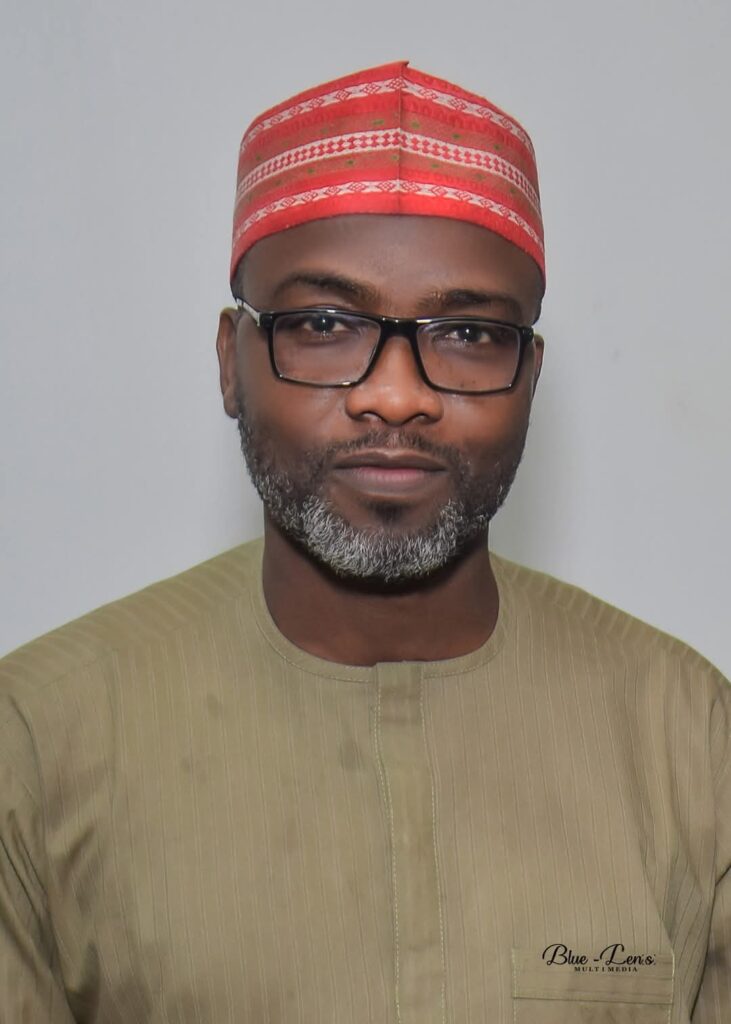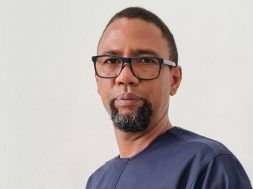In a bold stroke signalling its resolve to chart a future rooted in innovation and digital inclusion, Kano State has appointed Dr. Bashir Abdu Muzakkari as the pioneer Director-General of the Kano State Information Technology Development Agency (KASITDA).
Governor Abba Kabir Yusuf’s selection of Dr. Muzakkari — a computer scientist, seasoned public servant, and policy architect — is seen by many as a defining moment for Northern Nigeria’s digital trajectory.
Until now, Dr. Muzakkari has served as the Special Adviser to the Governor on Digital and Creative Economy, where he has quietly, yet effectively, laid the groundwork for what may become Kano’s most consequential digital revolution to date.

Until now, Dr. Muzakkari has served as the Special Adviser to the Governor on Digital and Creative Economy, where he has quietly, yet effectively, laid the groundwork for what may become Kano’s most consequential digital revolution to date.
KASITDA: A vision takes form
“We are building a digitally empowered and inclusive society,” Dr. Muzakkari tells Technology Times in an exclusive interview ahead of his appointment as DG of KASITDA, referencing the Kano State Digital Economy Policy (KSDEP), the guiding framework he helped craft.
Under his stewardship, Kano has launched a string of initiatives — from the drafting of the state’s e-Government Policy and the domestication of the Nigeria Startup Act, to the introduction of landmark bills that embed technology in every sector of public life.
These aren’t just policy documents. They’re blueprints designed to shift the socio-economic fortunes of Kano by embedding digital processes in public finance, civil service, health, education, transport, security, agriculture, and beyond.
A technocrat’s rise
Dr. Muzakkari brings more than two decades of multi-sectoral experience to KASITDA. With a Ph.D. in Computer Science from Universiti Sultan Zainal Abidin in Malaysia, and a research specialisation in Wireless Sensor Networks and IoT, his academic credentials are rock solid.
But it’s his practical engagements — both at state level and in academia — that reflect a leader grounded in service delivery.
He is a faculty member at Northwest University Kano, where he has held roles like Director of Academic Planning and pioneer Director of Management Information Systems. He’s also no stranger to public service, having previously served as Senior Special Assistant on ICTs under former Governor Rabiu Kwankwaso.
That unique mix of intellectual firepower and field-tested governance makes him a natural fit for this new frontier.
KASITDA: Building the digital backbone
The new agency, KASITDA, is envisioned as the heartbeat of Kano’s digital ambition — tasked with fostering innovation, expanding digital infrastructure, and creating opportunities for local talent.
Its 12-pillar policy framework, as led by Muzakkari’s e-Government Policy Drafting Committee, touches everything from integrated transport systems to e-procurement, electronic land administration to digital revenue collection, and human resource digitisation to agricultural IoT.
In agriculture, Kano is already piloting smart farming solutions. At the Kumbotso Cattle Market and Kabo Irrigation Scheme, IoT-powered platforms are monitoring water use, crop diseases, and irrigation cycles. Drone technology is set to follow — for fertiliser application, pest surveillance, and land mapping.
“We are modernising value chains and improving rural livelihoods,” Dr. Muzakkari says.
Resurrecting innovation from the ashes
One of the most potent symbols of Kano’s transformation is the Digital Industrial Park. Burnt to the ground during nationwide protests in August 2023, the park has since been revived under state ownership.
It will serve as a tech hub for startups, creators, and innovation enthusiasts, housing the state’s flagship talent incubators and digital entrepreneurship programmes.
Meanwhile, the government has completed the first-of-its-kind Digital Literacy and ICT Proficiency Survey, generating a data-driven map of digital skills in the state.
“Even NITDA hasn’t done that yet,” Dr. Muzakkari says, with measured pride.
Training a generation for tomorrow
Kano is now home to a revived Institute of Information Technology in Kura, formerly known as Informatics. The school is churning out young technologists, with a 30% gender inclusion rate that is projected to grow to 50% as the institute transitions into a boarding system.
Initiatives like “She Codes” — developed in partnership with Kano’s tech hubs — aim to mainstream women in the state’s digital workforce.
“We’ve already trained thousands in digital marketing, web development, and entrepreneurship,” he says. “Many have secured remote jobs or launched startups.”
The target: 100,000 trained youths by 2027.
From urban fibre to rural connectivity
Kano’s digital development isn’t stopping at city limits. The government has laid 108km of state-owned fibre optic cable across all municipal LGAs. Strategic partnerships with MTN and MainOne are helping close broadband gaps, particularly in rural areas.
The state’s data infrastructure includes Tier III and Tier II data centres, supported by Galaxy Backbone’s Taho Data Centre — the first of its kind in Sub-Saharan Africa.
A Right of Way waiver policy is in the works to incentivise further fibre rollout and shared infrastructure development.
e-Governance for all
In the civil service, Muzakkari’s team is rolling out Digital Skills for Governance (DSG) — a training programme targeting 5,000 public officials in ICT, data management, and digital tools.
“We’ve already identified basic and intermediate-level government employees for tailored training. Our goal is a digital-first government,” he says.
A slew of laws are backing this push, including the Kano State Digitalisation and E-Governance Law Bill 2024, now awaiting approval in the State Assembly.
Inclusion at the core
Kano’s digital blueprint prioritises equity. Community ICT centres are being deployed in remote LGAs. A Digital Wheel — a mobile tech lab on wheels — is delivering IT training to underserved areas.
There’s also the Rural Digital Inclusion Fund, which is being launched to extend internet access and digital skills training to women, youth, and marginalised groups.
“No one will be left behind,” Muzakkari says firmly.
Green tech and the SDGs
The state is embedding environmental sustainability into its tech infrastructure. From promoting energy-efficient data centres to enforcing e-waste protocols and planting trees tied to every ICT project, Kano is aligning its digital strategy with the UN Sustainable Development Goals.
“It’s our Digital for Climate strategy,” Muzakkari says. “Every ICT project must reflect our environmental responsibility.”
From policy to legacy
At the centre of this vision is the proposed Digital and Creative Economy Innovation Centre (DCEIC) — a hub for co-creation, entrepreneurship, and next-gen tech innovation.
“This will be our legacy,” Muzakkari says. “A centre that merges technology, creativity, and entrepreneurship to create sustainable prosperity.”
He believes it will not only serve as a springboard for Kano’s digital revolution but also position the state as the digital capital of Northern Nigeria.
A mandate with meaning
Dr. Bashir Abdu Muzakkari’s appointment as Director-General of KASITDA isn’t just about who leads — it’s about what Kano chooses to become.
As the state plots a course towards one million digital jobs and 90% digital literacy by 2030, his leadership is both symbolic and strategic.
With an ambitious policy framework, a well-resourced team, and strong partnerships across public and private sectors, Kano’s digital future has never looked more tangible.
For a state often associated with tradition, it is now racing ahead — wired, connected, and reimagined for a digital age.
Source of Article

